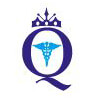-
Jobs
-
- Jobs by City
-
Jobs by Department
- Sales & Marketing / Business Development / Telecaller
- Health Care / Pharmaceuticals / Medical
- ITES / BPO / KPO / LPO / Customer Service
- Front Office / Reception / Computer Operator / Assistant
- Manufacturing / Production / Quality
- HR / Recruitment / Administration / IR / Training & Development / Operations
- Accounting / Auditing / Taxation
- IT Software - Application Programming / Maintenance
- Hotel / Restaurants / Travel / Airlines
- Education / Teaching / Training / Counselling / Academic
- Engineering / Engineering Design / R&D / Quality
- Financial Services / Banking, Investments / Insurance / Stock Market / Loan
- IT Software - Others
- IT Software - Ecommerce / Internet Technologies
- Real Estate / Construction
- Supply Chain / Purchase / Procurement
- View All Departments
- Jobs By Qualification
-
Jobs by Role
- Chartered Accountant Jobs
- Medicine Doctor Jobs
- Company Secretary Jobs
- Sales Executive Jobs
- Marketing Executive Jobs
- Telecaller Jobs
- Sales Manager Jobs
- Accountant Jobs
- BPO Executive Jobs
- Telesales Executive Jobs
- Marketing Manager Jobs
- Accounts Executive Jobs
- Computer Operator Jobs
- Business Development Manager Jobs
- HR Recruiter Jobs
- Customer Care Executive Jobs
- View All Roles
- Jobs by Skills
- International Jobs
- Jobs by Company
- Career
-
Consultant
-
Recruitment Agency
- Recruitment Agency in India
- Recruitment agency in Delhi
- Recruitment agency in Mumbai
- Recruitment agency in Bangalore
- Recruitment agency in Hyderabad
- Recruitment agency in Kolkata
- Recruitment agency in Chennai
- Recruitment agency in Pune
- Recruitment agency in Noida
- Recruitment agency in Ahmedabad
- Recruitment agency in Gurgaon
- Recruitment agency in Lucknow
- Recruitment agency in Jaipur
- Recruitment agency in Indore
- Recruitment agency in Thane
- Recruitment agency in Vadodara
- Recruitment agency in Chandigarh
- Recruitment agency in Bhubaneswar
-
Other Consultants
-
- Login
- Post Resume
